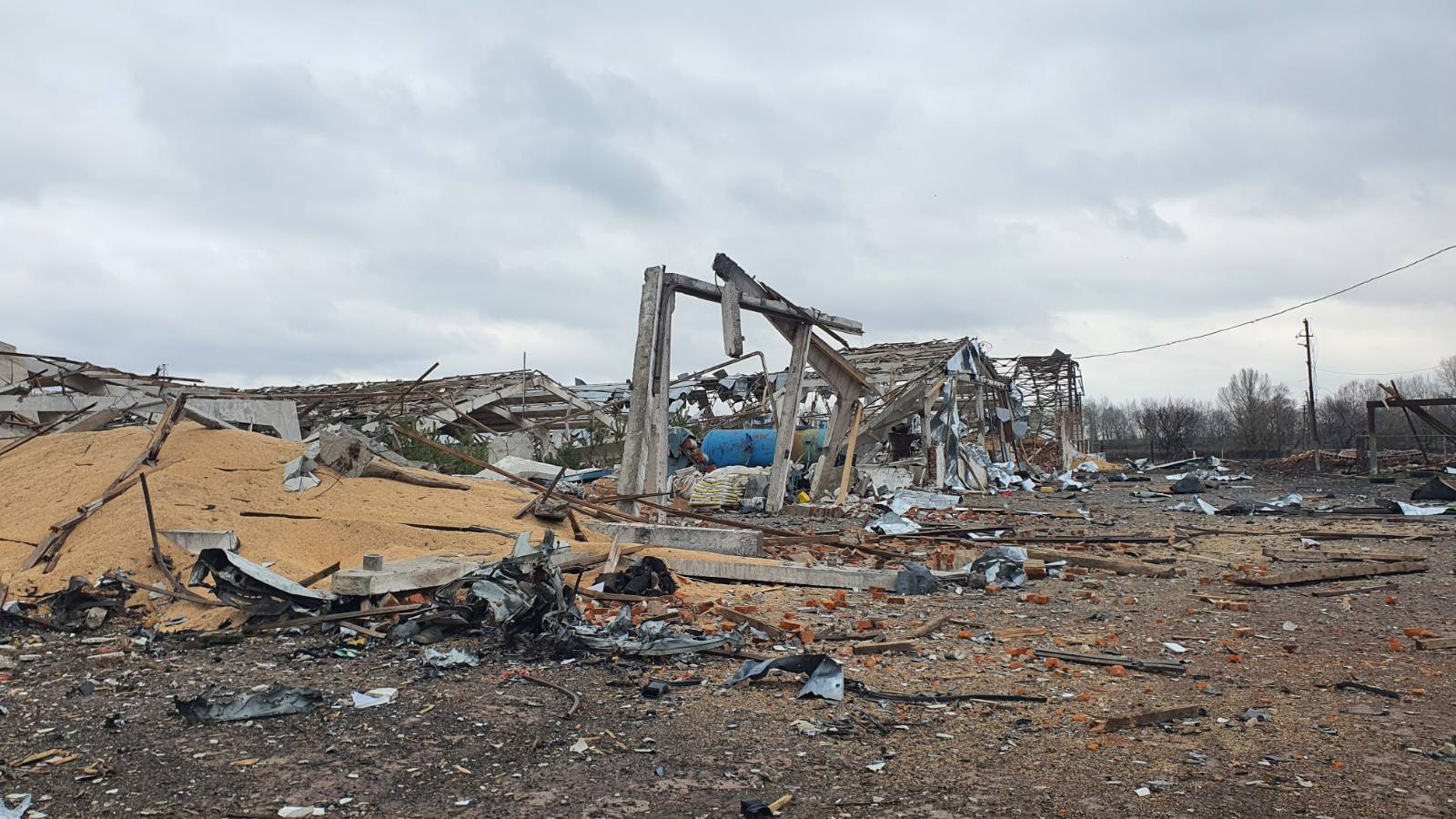



Ukrainian farmers on the verge of bankruptcy
An attack on Ukraine is an attack on food security, the Ukrainian Agri Council saysSince July 18, when Russia unilaterally withdrew from the Black Sea Grain Initiative, the Russians have carried out 17 massive attacks on grain storage facilities throughout Ukraine, destroyed more than 300,000 tons of Ukrainian grain, and damaged and partially destroyed 105 Ukrainian port infrastructure facilities. They also launched more than 500 Shahed-136 kamikaze drones across Ukraine in September alone. Most of them targeted critical infrastructure and agricultural enterprises, according to a news release from the Ukrainian Agri Council.
Every attack on Ukraine's port infrastructure and agricultural enterprises is an attack on the food security of the whole world.
“The ports of the Danube cluster are currently the only waterway for Ukrainian agricultural exports. If it is not protected by powerful air defense systems, the consequences will be greater. Firstly, for those countries that depend on Ukrainian agricultural products,” said Andriy Dykun, head of the Ukrainian Agri Council (UAC) “Russians are destroying not only port infrastructure but also other grain storage facilities and agricultural enterprises throughout Ukraine, aiming to create a food crisis in Ukraine and the world."
"The hit to the grain storage facility in Uman is an example of the actions of the aggressor, who, in addition to energy infrastructure, has set a new goal for itself: the destruction of crops, elevators, grain warehouses, and vehicles," he added. "It no longer matters where the elevators are located, in what region of the economy. This is illustrated by the example of the city of Uman, where seven Shahed-136 kamikaze drones flew to one of the grain silos. The city, where the head office of the Ukrainian Agri Council is located, is in the center of Ukraine and very far from ports."
Ukraine's agricultural sector suffers huge losses after each attack by the enemy. As a result of the attacks on the Danube cluster ports and the blockade of seaports, grain exports to Asia, Africa, and Europe have decreased by almost 3 million tons per month, and Ukraine has lost 40% of its port export potential. It will take at least a year and millions of dollars to rebuild the infrastructure in some regions. Currently, the survival of agricultural enterprises is the number one issue for Ukraine.

“We can talk a lot about post-war reconstruction and how we will integrate after the Victory, but now we have only one strategy - to survive," Dykun added. "Humanity is being held hostage by a terrorist country that is blackmailing the entire world with hunger. The world must react firmly and according to the situation! The Ukrainian agricultural sector needs support as never before, as it is a direct aid to the Ukrainian economy, it means taxes for the state budget and jobs for the population, and it is an opportunity to buy weapons to defeat the enemy. If we cannot export food, the population of the poorest countries will be on the verge of survival. In addition, the economy of not only Ukraine but the world will suffer. The price of grain will rise, and not all countries will be able to afford to buy agricultural products, which means that the price of food will rise significantly: flour, cereals, meat."
According to official data, IMF assistance to Ukraine amounted to $3.5 billion over 7 months of 2023. And the taxes that Ukraine could receive from open ports are about $5 billion. Moreover, financial assistance from the United States to Ukraine in 2022 amounted to $18 billion, which is the same amount that Ukraine could have earned on its own if it had the opportunity to export products by sea.
The Ukrainian agricultural sector is in a critical situation regarding financial performance in 2023. According to the UAC experts, direct losses of the agricultural sector by the end of 2023 will amount to more than $3 billion, and most enterprises will go bankrupt. The main reasons are the blockade of the Black Sea and expensive logistics. The situation is exacerbated by the rise in the cost of fuel, agrochemicals, and spare parts, which has led to higher production costs amid lower purchase prices.
“We tried to estimate the financial performance of the agricultural sector this year, focusing on the crop production sub-sector. We used the production of the main crops—wheat, corn, sunflower, barley, soybeans, and rapeseed—in the central regions of Ukraine. Due to low purchase prices and high production costs, all crops, except soybeans, are unprofitable this year. According to the forecast, crop production losses will exceed $3 billion. Under the scenario that provides for improved working conditions of seaports, the figure may drop to $1.2 billion, but the industry will still suffer large losses, even under the optimistic scenario,” said Dykun.
According to farmers from the UAC, Ukraine's largest agricultural association, the agricultural sector is unprofitable for the first time in 20 years.
“There were times when the profitability of wheat fell to 1%, but sunflower production has never been unprofitable. And this is despite the fact that this year's favorable weather conditions supported agricultural production. Last fall, winter crops were reduced, but thanks to the weather, we had a normal gross harvest. Next year, the acreage will decrease further. Farmers are saving on fertilizers and machinery, which will have a negative effect on the accumulative system, and the gross harvest will decrease significantly. The average Ukrainian will have enough food. But the issue of exports will become even more acute, and there will be no foreign exchange earnings in Ukraine,” members of the Ukrainian Agri Council said.



